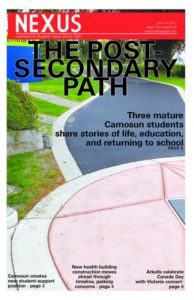19th century politician Joseph Trutch—who helped bring British Columbia into the Canadian Confederation—was a racist, so it was a good decision for the University of Victoria to remove his name from what was formerly known as the Trutch residence hall (a new name has not been decided on as of press time).
Trutch’s skewed image of First Nations peoples led to a land decrease of around 91 percent for established reserves; his legacy includes other provincial political issues that we’re still trying to fix to this day.

The removal of his name from the UVic building is a small, local step in the right direction. Still, getting to this point took too long and doesn’t bode well for the future, should the university encounter something like this again. There was a failed petition in 2010 to change the name, which is disheartening; it should be on the university to acknowledge situations like this on their own without the pushes and prods of students and the public.
This year is the celebration of Canada’s 150th anniversary of confederation, and one of the big focus points for the country going forward is reconciliation; that should hold true on post-secondary campuses such as UVic and Camosun. We shouldn’t forget and erase Trutch’s views and actions; instead we should confront the issues and move forward, constantly learning what we can do to help. Camosun, too, should be constantly looking for more opportunities to become inclusive and should become a leader in reconciliation.
Those who live in the UVic building will no longer have to live in a place with a name attributed to a racist. For post-secondary culture in general, this is a positive decision and helps bring awareness to these and other issues. Hopefully these decisions all add up and send a bigger message to the government: people want change and want these issues fixed, and we should all be working together to create a future that is safe, inclusive, and healthy for everyone, no matter their background.
